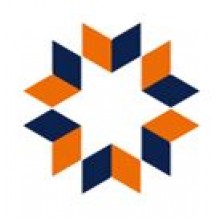For the second year in a row the Northern Powerhouse Partnership (NPP) published its Fairer Schools Index on Monday. The Index was created in 2019 to ensure that a broad range of contextual measures were included when evaluating secondary school performance.
The Index draws upon research undertaken at the University of Bristol to create a ‘value added measure’ in contrast to Progress 8. This ‘value added’ measure takes into account a range of key pupil factors such as gender, age, ethnicity, special educational needs, free school meal eligibility, and whether English is not a first language.
Schools North East has consistently pointed out, since Progress 8 was first introduced, that long term disadvantage is not accounted for adequately in current secondary school performance measures. Sarah Mulholland from the NPP said ‘By ignoring these realities, schools with poorer pupils but which are making real progress will nevertheless be ranked lower than they deserve’.
When compared against league tables that use Progress 8, a fifth of schools see their national league table position change by more than 500 places. 46% of schools judged ‘well below average’ and ‘well below average’ under Progress 8 move up out of these bandings.
The impact of this ‘value added’ measure is particularly significant for our region, as 15 of the 20 schools that climb the highest in the Index are in the North, and 5 in the North East. Grangefield Academy in Stockton-on-Tees was also in the top 20 schools in the Index, moving up 244 places from its official DfE league table Progress 8 ranking.
In the Schools North East ‘Manifesto for North East Education’, published at the end of last year, our key recommendation was to recognise the context schools work in. The North East has high levels of long term deprivation, which has an impact on pupil attainment and progress. Current measures of school performance fail to take this into account, with economic and geographical factors mistakenly presented as educational ones. The NPP Fairer Index recognises the hard work schools in the North and across the country do in extremely challenging environments, giving policy makers a more accurate picture of where to target support and where educational practice is effective.
Current progress measures have unfairly penalised schools serving disadvantaged communities, and a longer term recognition of this context is crucial. Under the previous Ofsted framework, inspection judgments relied on Progress 8 meaning judgements reflected intake rather than school and teaching standards. The coronavirus pandemic threatens to exacerbate this problem. A digital divide and the variety of support pupils have received at home for remote learning threatens to further the disadvantage gap.
Many of the limitations of remote learning are outside of the control of schools, despite school staff going above and beyond to provide education for all children and young people. For this reason, Schools North East has written to the Secretary of State for Education to suspend league tables this year, and called for the Government not to reinstate Ofsted inspections this year, and if they do go ahead this academic year, not to use exam results in inspection judgements. It will be impossible to test fairly and accurately this year due to the differing levels of access to remote learning, and this must be recognised in the accountability system.
